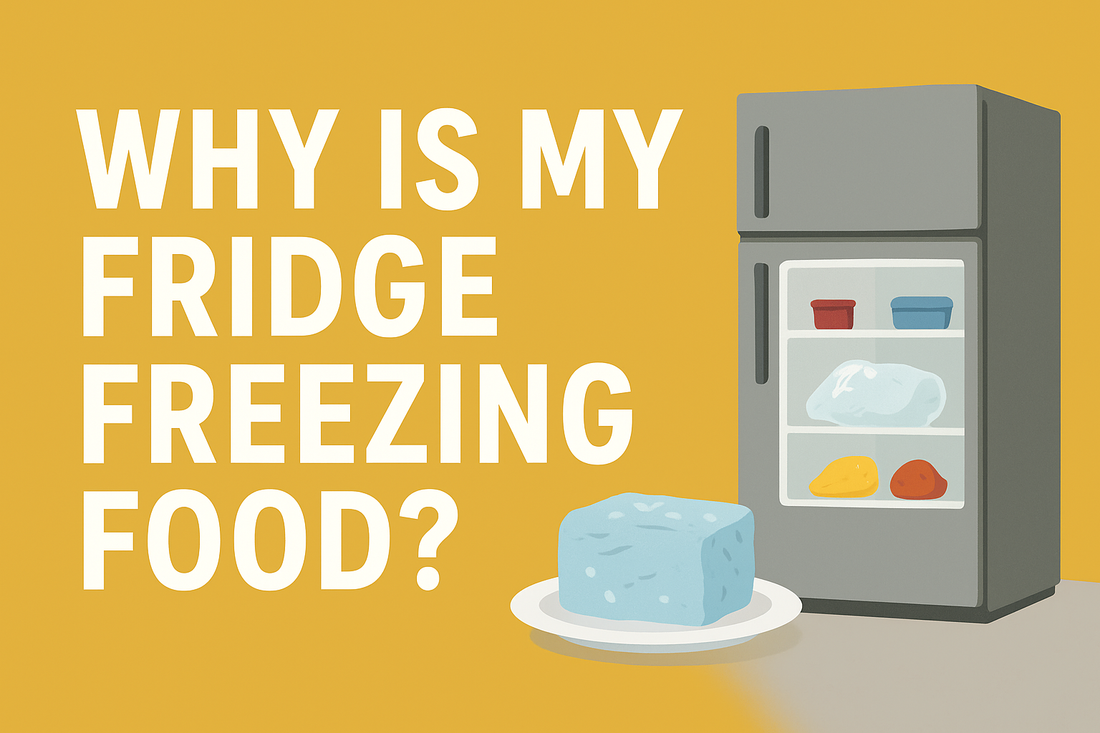
Why Is My Fridge Freezing Food? Causes and How to Fix the Problem
Share
If you’ve ever reached into your fridge expecting crisp lettuce but pulled out an icy, frozen mess instead, you’re not alone. A refrigerator that freezes food is more than just an inconvenience—it can ruin groceries and hint at an underlying problem. Let’s break down the common reasons this happens and how you can fix it.
Common Reasons Your Fridge Freezes Food
1. Temperature Set Too Low
The most obvious culprit is that the fridge temperature is set lower than necessary. Most refrigerators work best when set between 37°F–40°F. Anything colder can cause certain items—especially those near air vents—to freeze.
Fix: Adjust your thermostat to the recommended range. Give it 24 hours to stabilize before checking results.
2. Blocked Air Vents
Refrigerators rely on a steady flow of cold air from the freezer section. If vents are blocked by food items, cold air can pool in certain areas, freezing whatever’s nearby.
Fix: Rearrange your food so vents have space around them. Avoid overpacking shelves.
3. Faulty Thermostat or Temperature Control Board
If your thermostat is faulty, the fridge might cool more than it should, leading to freezing.
Fix: Test the thermostat or control board. If it’s defective, you may need a replacement—an easy job for a qualified appliance repair tech.
4. Broken Damper Control
In some fridge models, a damper controls how much cold air flows from the freezer to the fridge. If it’s stuck open, too much cold air can enter.
Fix: Inspect the damper for damage. Replace if it’s not opening and closing properly.
5. Defective Thermistor
The thermistor measures temperature and sends signals to the control board. If it’s not reading accurately, the compressor may run too long, overcooling your fridge.
Fix: A faulty thermistor will need testing with a multimeter and replacement if it’s out of range.
6. Overloading the Fridge
Packing your fridge too full can disrupt airflow, causing uneven cooling. This may freeze items near vents while leaving other areas warmer.
Fix: Keep your fridge about 75–85% full for the best airflow.
How to Prevent Your Fridge From Freezing Food
-
Check and maintain proper temperature settings.
-
Avoid blocking vents and air pathways.
-
Don’t overstuff shelves.
-
Schedule routine maintenance to catch faulty parts early.
When to Call for Professional Help
If adjusting the temperature and rearranging items doesn’t solve the issue, the problem could be with internal components. In that case, it’s best to have a professional inspect and repair your refrigerator before it causes more food waste or damage.
Final Tip: A fridge that’s freezing food is usually telling you something’s wrong with airflow, temperature control, or a mechanical component. Fixing it early can save groceries, money, and frustration.
Visit PRS Appliances for expert advice, repair guidance, and the best local deals on new and second-channel refrigerators.
